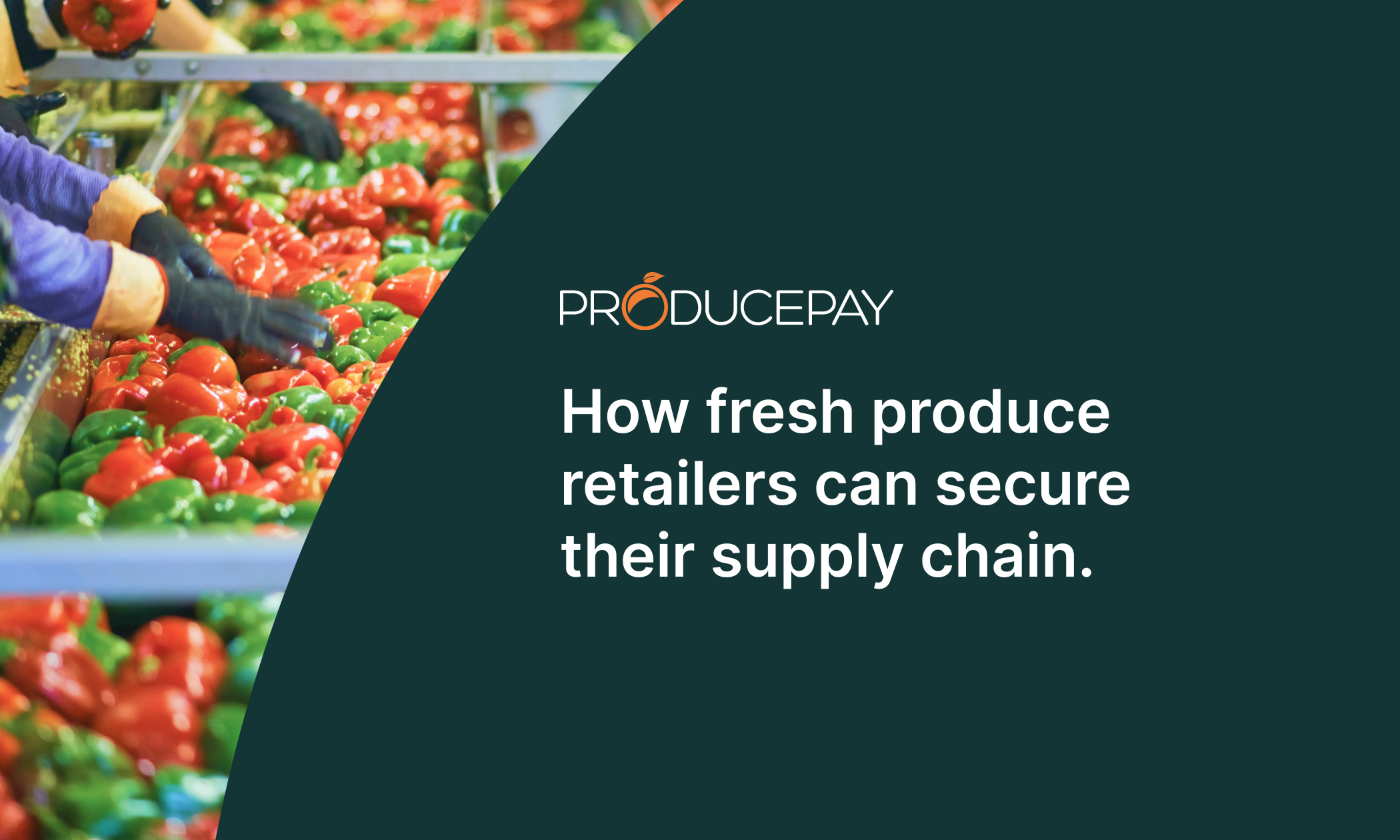
How fresh produce retailers can secure their supply chain.
Meeting customer demand for a steady supply of fresh agricultural products is a crucial yet complex task that requires meticulous planning and execution.
This journey begins by carefully selecting suppliers capable of meeting stringent quality and sustainability standards and delivering the requisite produce volumes within the agreed timelines. Aligning suppliers with these criteria is foundational for establishing an efficient and resilient fresh produce supply chain.
Once retailers have established a network of reliable suppliers, they can implement advanced tracking and inventory management systems. These systems leverage cutting-edge technologies to forecast demand, optimize storage conditions, and implement effective stock rotation practices to reduce waste.
The value of these systems lies in their ability to provide a real-time overview of the supply chain, enabling retailers to swiftly adjust their procurement strategies in response to fluctuating supply and demand dynamics, thus avoiding potential surpluses or shortages.
How do supply shortages affect retailers?
Within the agricultural sector, retailers face the demanding task of ensuring a constant and high-quality supply to meet market expectations.
One of the most significant challenges in this sector is the rejection of fresh agricultural products, which leads to substantial economic losses for farmers and distributors and negatively impacts the fresh produce supply chain, ultimately affecting retailers.
These rejections can be caused by various reasons, including product quality or non-compliance with specific standards, highlighting the need for strict control over the sourcing process.
Increasing transparency throughout the supply chain is critical to addressing these challenges. By improving transparency, retailers can gain a more precise and detailed understanding of every step of the process, from cultivation to the delivery of products to their premises. This information can facilitate early identification of potential quality or supply issues, allowing for the implementation of timely corrective measures to reduce the impact of rejections.
Furthermore, variations in the availability of agricultural products can force consumers to change their purchase preferences. When supply does not meet demand, consumers may be forced to look for alternatives, adversely affecting immediate sales and long-term brand or store loyalty.
Therefore, transparency is essential for retailers in the agricultural sector, enabling them to foresee and adapt to the challenges of fresh product supply and ensuring customer satisfaction and the long-term viability of the business.
Benefits of traceability for retailers
Traceability in the agri-food sector refers to the ability to track the journey of an agricultural product from its origin to the end consumer. This concept, crucial for retailers, brings significant benefits beyond inventory management, positively impacting quality, food safety, and consumer trust.
Improves the management of quality and safety of agricultural products
By having a detailed system that tracks each product along its supply chain, retailers can quickly identify the source of any quality or contamination issues.
This not only facilitates the specific and efficient recall of affected products, minimizing public health risks and reducing economic losses, but also helps prevent future incidents by correcting defective practices in production or handling.
Strengthens the trust relationship with consumers
With a customer base that is increasingly aware of the provenance and safety of the foods it consumes, being able to provide detailed information about the origin and journey of agricultural products translates into significant added value. Consumers value transparency and the ability to access this information, which increases their trust in retailers and promotes greater loyalty.
Optimizes their fresh produce supply chain
By understanding each stage of the process, from production to delivery, they can identify inefficiencies, anticipate potential disruptions, and quickly adapt to changes in demand.
This optimization reduces operational costs and losses due to waste and improves responsiveness to market fluctuations, ensuring a constant and efficient supply.
What does ProducePay Visibility offer to retailers?
ProducePay Visibility revolutionizes the fresh produce supply chain by integrating advanced technology with expert human insights, ensuring transparency and predictability from the field to the final destination.
Facing the challenge of global fresh produce supply chain inefficiencies, our solution guarantees seamless traceability of your produce through end-to-end supply chain visibility, significantly reducing rejection rates and enhancing customer satisfaction.
Quality Control is at our core, with on-site agronomists conducting quality inspections in the field and pallet-level inspections at shipping to guarantee product integrity from the outset. Real-time Order Tracking provides crucial shipping data, including location, temperature, and humidity, ensuring your produce is monitored throughout its journey. Our Visibility Dashboard centralizes shipment information and empowers you to manage orders, communicate changes and assess performance in one accessible location.
Adopting ProducePay Visibility brings substantial benefits, including confidence in the quality and timely delivery of your produce, a centralized source of truth via our dashboard, enhanced stakeholder collaboration, and improved transparency and planning capabilities.
This approach reduces waste and disputes by enforcing stringent quality controls and finding alternative marketing opportunities for non-spec produce, evidenced by an 80% reduction in retail rejections and waste.

